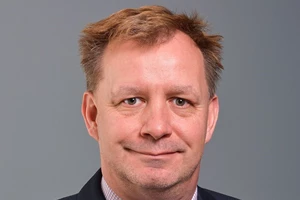COP28 Latest: Bankers Start Talks With All Options on the Table
(Bloomberg) -- Executives from the world’s biggest banks and investment firms are set to explore new funding structures and partnerships, as they use finance day at the COP28 climate summit in Dubai to devise viable pathways to a low-carbon economy.
Never before has the finance industry attended a United Nations Conference of the Parties in such vast numbers, according to provisional registration data from the UN’s Framework Convention on Climate Change. Attendees include BlackRock Inc. Chief Executive Officer Larry Fink, as well as HSBC Holdings Plc CEO Noel Quinn and Brian Moynihan of Bank of America Corp.
They’ll be rubbing shoulders with numerous oil executives, which is another notable feature of this year’s talks. Sultan Al Jaber, president of the COP28 summit and head of the Abu Dhabi national oil company, Adnoc, has said he wants as many interests as possible represented to ensure a “successful” outcome. Against that backdrop, Darren Woods just became the first ever Exxon Mobil Corp. CEO to attend a COP since the summits started in the 1990s.
 Darren Woods at COP28, on Dec. 2.Source: Bloomberg
Darren Woods at COP28, on Dec. 2.Source: Bloomberg
The mantra of this year’s summit is fast becoming that finance needs to go where emissions are, meaning it’s no longer feasible to blacklist firms that pollute, according to Huw van Steenis, vice-chair and partner at Oliver Wyman Inc. It’s about “financing emissions reductions” rather than just “reducing financed emissions,” he said.
Other areas of focus will include coming up with financial structures that target the Global South, where the fallout of climate change is doing the most damage. The goal is to come up with models that offer attractive returns to private investors without crippling borrowers.
Attendees will also turn their attention to the voluntary carbon market, which has been hit by a string of scandals that have raised serious questions as to the validity of the offsetting claims made by those buying carbon credits.
And then there’s the issue of climate technology. Kara Succoso Mangone, head of sustainable finance at Goldman Sachs Group Inc., says a key question remains “how do we work together with the public sector to get additional funding both into climate technology in general, and specifically into emerging markets.”
She also notes that many of the issues being discussed all hinge on the reliability of “data and measurement.”
Mia Mottley Pitches Overhaul of ‘Imperial’ Financial Order
Barbados Prime Minister Mia Mottley pitched her vision for overhauling the global financial system to provide more support for countries hit hardest by the climate crisis. Mottley said insurance is inadequate for citizens in Barbados, who were hit by a wave of extreme weather over the summer. Debt-pause clauses are needed to provide the fiscal leeway to recover, she said.
While she welcomed agreement on a loss and damage fund, Mottley said the total — around half a billion dollars — was nowhere near sufficient. By comparison, a 1% financial services tax would yield $420 billion, while a similar levy on global shipping could provide $70 billion. She also pitched an idea for a $5 dollar climate surcharge on domestic flights and a $10 for international transfers.
Existing international finance institutions were established in the “old imperial order” and are no longer fit for purpose, Mottley said during a keynote speech in Dubai on Monday. “The reality is unless we change our paradigm completely, we’re just going to be playing catch up.”
Attracting Private Finance Is Key Goal
Figuring out ways to attract more private finance for climate action is among the key goals of this year’s COP, according to Sonja Gibbs, head of sustainable finance at the Institute of International Finance, in an interview on Bloomberg Television on Monday.
Higher interest rates and record debt levels pose a challenge for capital flows, she said, adding that “the financial sector can’t do it on its own.” Governmental policy and regulation are crucial to address “hard to abate sectors,” she said.
When it comes to climate finance, the approach needs to be “pro-growth,” Gibbs said. And if climate policies fail to achieve a so-called just transition, it may lead to political backlash, she said. “That’s the risk in a year when we have something like 40 elections coming up,” she said.
©2023 Bloomberg L.P.
KEEPING THE ENERGY INDUSTRY CONNECTED
Subscribe to our newsletter and get the best of Energy Connects directly to your inbox each week.
By subscribing, you agree to the processing of your personal data by dmg events as described in the Privacy Policy.
More oil news

Woodside Looks to Build ‘Dream Team of LNG’ at Acquired US Plant

Eni signed exclusivity agreement with KKR for the potential sale of a minority stake in Enilive

Woodside's quarterly revenues exceed $3 billion backed by strategic milestones

Oil Rises as Biden Quits US Race, Blazes Threaten Canadian Wells

Kamala Harris Seen as Tougher Oil Industry Opponent Than Biden

PetroChina joins Oil and Gas Decarbonisation Charter

Galp reports 16% rise in Q2 2024 net profit amid higher oil prices and lower production costs

Nigeria’s Dangote Refinery Targets Output of 550,000 Barrels a Day

Oil Falls With Broader Commodity Weakness Amidst Listless Trade

Occidental Planning to Sell Bonds in Up to Five Parts

CSIS: long-term LNG demand to reshape global export capacity growth
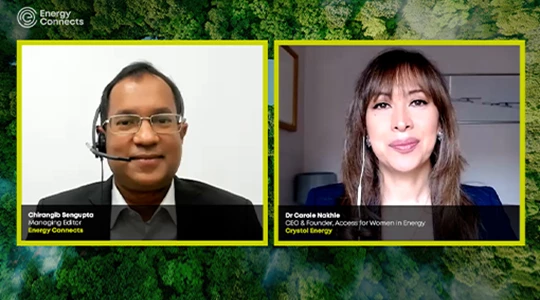
More women in energy vital to the industry’s success
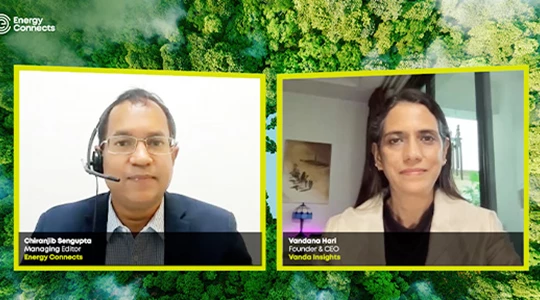
India’s energy sector presents lucrative opportunities for global companies
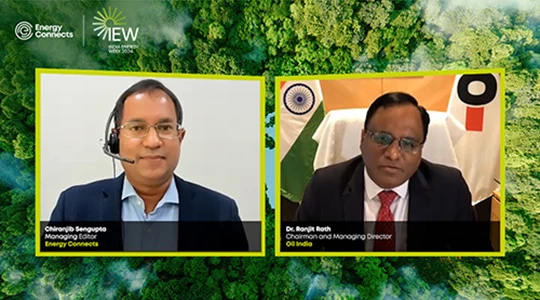
Oil India charts the course to ambitious energy growth
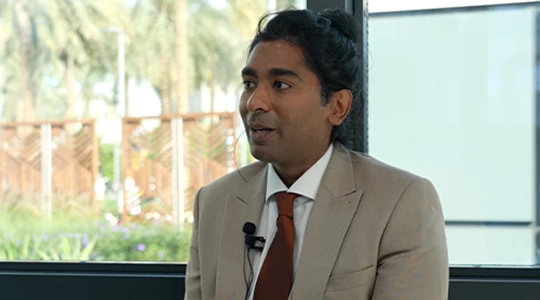
Maritime sector is stepping up to the challenges of decarbonisation
Partner content

Navigating the trading seas: exploring the significance of benchmarks

Back to the Future(s): the best commodities benchmarks are still physically settled

Ebara Elliott Energy offers a range of products for a sustainable energy economy

Essar outlines how its CBM contribution is bolstering for India’s energy landscape





























